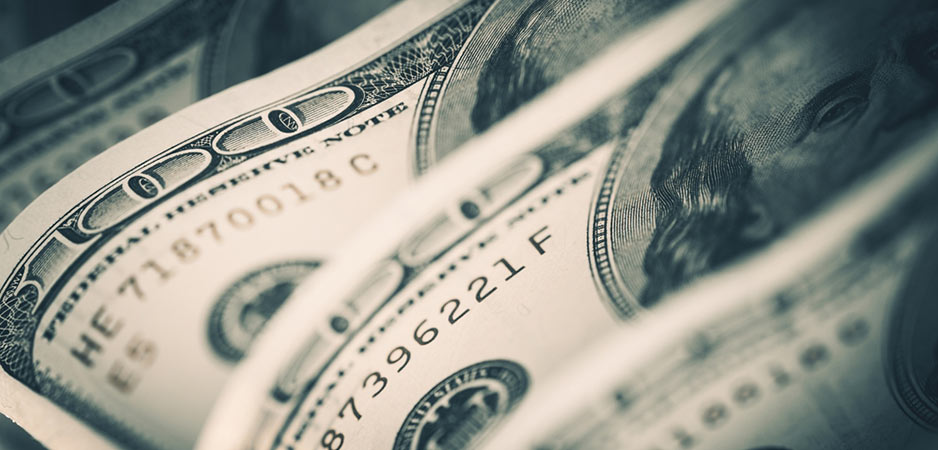In a Reuters article dated August 5, with the title “As dollar slides, some investors fret about its status as world’s reserve currency,” Saqib Iqbal Ahmed signals what may be the indicator of a looming seismic shift in the global economy. The article highlights the ever more visible fragility of the US dollar, now battered by the uncertainty associated with funding the government’s and the US Federal Reserve’s response to the coronavirus pandemic.
How Billionaires Take Seriously the Proverb “Charity Begins at Home”
The first sentence of the article reveals the mood of the market. “Some investors are worried the U.S. response to the coronavirus pandemic is dealing a body blow to the dollar, potentially accelerating what has so far been a slow erosion in the greenback’s status as the world’s dominant reserve currency.”
Here is today’s 3D definition:
Reserve currency:
1) Theoretically any national or non-national currency that is recognized as the basis for commerce because nations hold reserves in that currency
2) From around 1950 onward, synonymous with the US dollar, thanks to a dominating military presence across the globe and several generations of aggressive bankers
Contextual Note
In an even more recent Reuters article, on August 6, Hideyuki Sano comments: “The dollar struggled to stem its broad decline on Thursday as investors worried the U.S. economic recovery may lag other countries due to a high level of coronavirus infections while the global economy slowly gets back on its feet.”
Following the initial stimulus bill, the CARES Act, in March, many pundits and ordinary people concluded that the traditional warnings about spending money not already in the government’s coffers were either mistaken or little more than ideological slogans. The traditional argument consisted of claiming that monetary creation must be inflationary. History classes have long used the example of Germany in the 1920s to explain this fatality.
When the US federal government injected liquidity that could potentially total as much as $6 trillion into an economy that was forced to shut down as a response to a pandemic, nearly everyone agreed that it was necessary to prevent the risk of an instantaneous depression. Many people saw the violation of fiscal orthodoxy as proof that John Maynard Keynes was right and Milton Friedman wrong. Sometimes free lunches are needed.
Even the fiscally conservative Republicans accepted the exceptional injection of trillions, partly because the government’s generosity favored corporations more than real people, but principally because they believed it would only be a temporary fix. They predicted that by the end of the summer, the US economy would experience a V curve that would set it back on what they touted as its normal track. They assumed that by then, the coronavirus would have seriously abated.
But the pandemic not only failed to abate, it surged forward with new vigor. In the past few weeks, the US economy has entered panic mode as a significant number of consumers, those who keep the economy going, are rapidly losing any hope of disposing of the resources that allow them to keep consuming. In many cases, they can no longer purchase the food to feed their families or to pay their mortgage or rent.
The chaos brought about by COVID-19 — the disease caused by the novel coronavirus — has reached the crucial point of demonstrating the degree to which the economic and social system of the US, and even the American empire, may be broken beyond repair. The media and the pundits have largely focused on the obvious, calling for alleviating misery and applying short-term solutions. But there are background issues that better and far more painfully reflect the longer-term curve of history in the 21st century.
Many in the mainstream media have complained of the insensitivity of Senate majority leader Mitch McConnell and other Republicans who object to the idea of giving money to people without the initiative to get a job. It’s almost as if they hadn’t been reading the news. As many businesses have closed, most of the jobless would be unable to find work even if they willingly accepted to subject themselves and their families to the risk of contamination.
A system that fatally links the health and even survival of ordinary people to the dependent relationship known as employment has been exposed by the pandemic as profoundly inhuman, especially in a nation where wealth abounds. The issue no longer has anything to do with the individual’s initiative and assertiveness, two quintessential American virtues. It is about ordinary citizens’ life and death.
The real and admittedly serious reason the Republicans may be objecting to a further “giveaway” may have nothing to do with their simplistic and condescending ideology that sees employers as “makers” and everyone else as “takers.” It may lie deeper in today’s geopolitical reality.
It is quite possibly a subject everyone in US politics or the media fears invoking: the increasingly evident risk of the collapse of the dollar as the world’s reserve currency. And although for the moment there is no credible candidate to replace it, the dollar’s enduring weakness could point toward a seismic shift in the offing.
Quoted by Marketwatch on August 3, Steven Barrow, head of G-10 strategy at Standard Bank, has evoked a “crash risk.” The author of the article deems this “a danger more often associated with emerging-market currencies.”
If a crash were to occur, some other solution would have to emerge immediately. Bitcoin has proved robust enough to justify the belief that a cryptocurrency might be able to get the job done. The Chinese have become experts in the use of digital payments. They pay for everyday objects with their smartphones instead of cash or card. It is no secret that the Chinese government is engaged in developing its own cryptocurrency.
Historical Note
The issue of the replacement of the dollar as the currency of global trade is hardly new. Because of the limited prospects among other national or regional currencies, the question remains highly theoretical. But the pressure has been mounting for decades. The eventual ouster of the dollar may have become an inevitable fact of history on that fateful day in 1971 when US President Richard Nixon abandoned the convertibility of the dollar to gold.
Within three years of Nixon’s decision, following the 1973 oil crisis, the petrodollar took the place of gold as the stabilizing factor for the dollar and consolidated, even more firmly than gold, the dollar’s universal appeal. The entire world had, after all, converted to an oil-fueled economy.
Four years ago, Ellen Brown, president of the Public Banking Institute think tank, explained how the threat to the US dollar’s role in the oil market contributed to a highly-aggressive foreign policy by the US in the Middle East. “In 2001, dissatisfied with the shrinking value of the dollars that OPEC was getting for its oil, Iraq’s Saddam Hussein broke the pact and sold oil in euros,” she wrote. “Regime change swiftly followed, accompanied by widespread destruction of the country.”
Brown also revealed the evidence from Hillary Clinton’s leaked emails that the real reason for the Franco-American takedown of Muammar Gaddafi and the brutal destruction of Libya in 2011 was the late Libyan leader’s plan for the monetary unification of the African continent. It was a threat to both the dollar and the egregiously colonialist French-controlled CFA.
In his Reuters article, Saqib Iqbal Ahmed points out that “the dollar has seen its status slowly degrade over the past two decades, with its share of global central bank reserves falling by about 10 percentage points, IMF data shows.” Marketwatch quoted analysts at UBS who said in a note just last week, “We expect the currency to be undermined by an ebbing of safe-haven flows, a reduction in the U.S. rate advantage, and political uncertainty ahead of the November presidential election.”
But yesterday brought breaking news that offered a glimmer of hope for the waning dollar when US President Donald Trump abruptly raised the stakes in his cold war with China by banning the WeChat and TikTok apps. According to Bloomberg, this has strengthened the dollar and weakened Asian currencies. One expert commented, “Dollar strength is likely to gain momentum in the short term as the heightened tension spurs a rush for haven assets.”
Yet managing the health of a currency through improvised skirmishes in a trade war will probably have the opposite long-term effect. The almighty dollar has simply lost most of its muscle.
*[In the age of Oscar Wilde and Mark Twain, another American wit, the journalist Ambrose Bierce, produced a series of satirical definitions of commonly used terms, throwing light on their hidden meanings in real discourse. Bierce eventually collected and published them as a book, The Devil’s Dictionary, in 1911. We have shamelessly appropriated his title in the interest of continuing his wholesome pedagogical effort to enlighten generations of readers of the news. Read more of The Daily Devil’s Dictionary on Fair Observer.]
The views expressed in this article are the author’s own and do not necessarily reflect Fair Observer’s editorial policy.
Support Fair Observer
We rely on your support for our independence, diversity and quality.
For more than 10 years, Fair Observer has been free, fair and independent. No billionaire owns us, no advertisers control us. We are a reader-supported nonprofit. Unlike many other publications, we keep our content free for readers regardless of where they live or whether they can afford to pay. We have no paywalls and no ads.
In the post-truth era of fake news, echo chambers and filter bubbles, we publish a plurality of perspectives from around the world. Anyone can publish with us, but everyone goes through a rigorous editorial process. So, you get fact-checked, well-reasoned content instead of noise.
We publish 2,500+ voices from 90+ countries. We also conduct education and training programs
on subjects ranging from digital media and journalism to writing and critical thinking. This
doesn’t come cheap. Servers, editors, trainers and web developers cost
money.
Please consider supporting us on a regular basis as a recurring donor or a
sustaining member.
Will you support FO’s journalism?
We rely on your support for our independence, diversity and quality.






